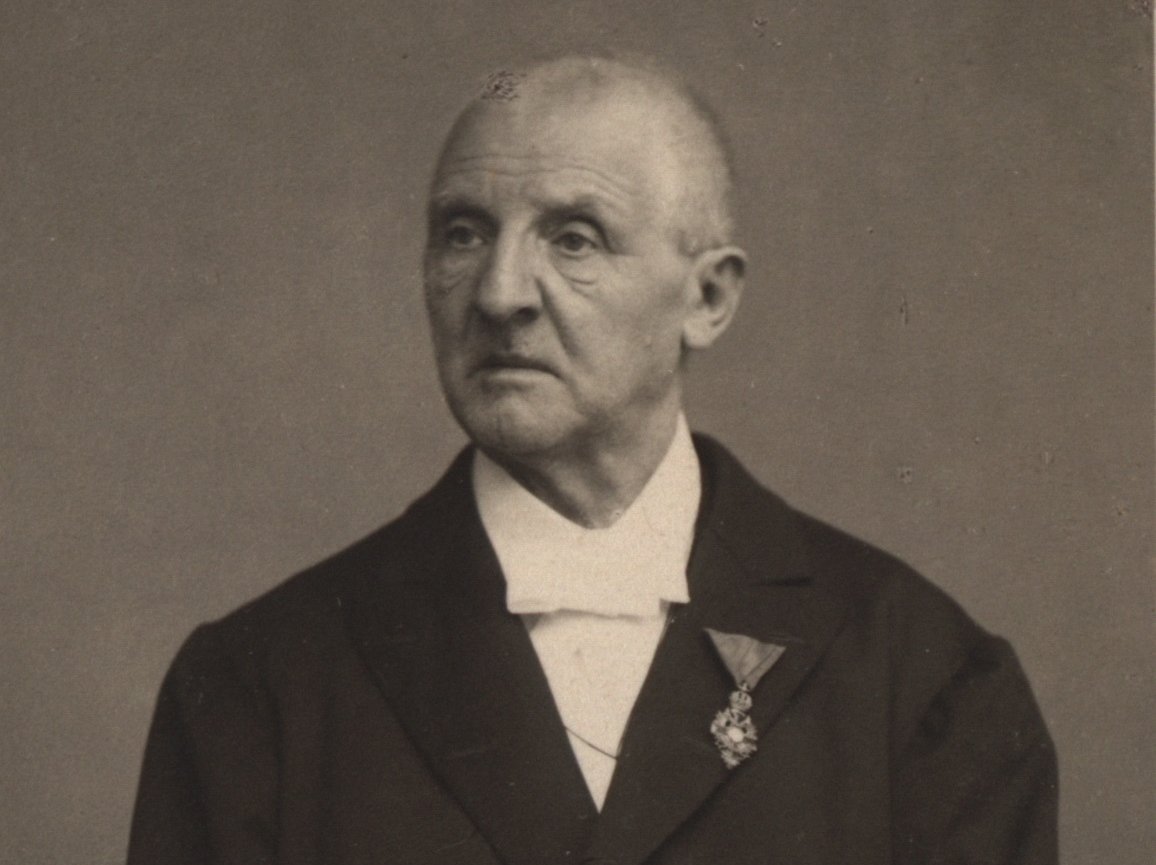
For Herbert Blomstedt, Anton Bruckner is “the greatest symphonist since Beethoven”. In our interview from the 2021/22 season, he provides an insight into his lifelong preoccupation with the composer. He outlines Bruckner’s spiritual and tonal world, which was inspired to a large extent by the view of the Austrian Alps. We learn how to find Bruckner’s soul in the symphonies and why acoustic incense should be used sparingly in their performance.
Hans von Bülow, the first chief conductor of the Berliner Philharmoniker, said of Anton Bruckner: “Half genius, half fool”. That is of course very polemical, but is there also a grain of truth in it?
He was certainly a genius, but not a fool. He was perhaps, to use Mahler’s words, lost to the world: a little insecure, and not particularly attractive either, which is why he had no luck with women. But he was a Paganini of the organ, who could fill the Royal Albert Hall in London six times in a row with his improvisations. And as a composer, he is completely unique. I regard him as the greatest symphonic composer since Beethoven.
In fact, that seems to have been his ambition: to achieve great things as a symphonist. Where did that come from?
Bruckner came from church music. The church was of great importance to him, but he didn’t want to dedicate his life to its music. He was looking for a larger audience than the church could offer him. He wanted to conquer the concert hall, he wanted to go out into the world.
But doesn’t his religion, the church background, resonate in the symphonies?
Bruckner’s symphonies represent the longing for the eternal. He leads listeners into a world they would otherwise never enter. However, the symphonies are not strictly speaking religious or Catholic. They are universal. This is secular symphonic music for the concert hall, which is also evident from the fact that he never quotes Gregorian chant or the Catholic liturgy. The chorale melodies that exist here were invented by Bruckner.
What kind of world is it that Bruckner reveals to us?
It is the world of his own imagination. This is where you find his soul. And he found this world through music, not through religion. That’s why I think it’s important not to perform his symphonies in a narrowly Catholic sense, with acoustic incense. As religious as he was, his faith is music. The Trinity exists only in the background in these moments. You can also hear that in the Fifth Symphony. He believes in the fugue, in the hymn, in the symphonic way of expressing himself. He overcomes his life crises with this faith. Mahler documents his crises in his symphonies, Bruckner overcomes them. The Fifth Symphony ends with a triumph over despair.
Bruckner is unique not only in his attitude, but also in his sound. What constitutes his idiom?
In his Fifth Symphony, Bruckner actually uses the same orchestra as Beethoven, except that he sometimes adds a trumpet or a tuba. But from the very first bar, it sounds completely different. He has a very broad vision. Perhaps the most famous example is the Seventh Symphony, in which the first melody lasts over a minute. That was his world. There are very long lines here, like the mountain ranges in St. Florian. Long lines, up and down, all the way up to dramatic mountain gorges. With a horizon that tells you there is something long and beautiful and great at the end of the world that will last forever. That, I think, influenced him and was coupled with his religious feelings. But he could also do things differently. The Sixth is a prime example of this. The scherzo is incredibly short, with a very succinct theme that doesn’t seem like a melody at all – very modern!
Concert excerpt: Bruckner's Symphony No. 4
There is no composer who is associated with you today as much as Anton Bruckner. How did that come about?
I can tell you a story about that. I was still a student in Stockholm when the Vienna Philharmonic and Wilhelm Furtwängler gave a guest performance in 1950 or 1951. The programme included Bach’s Third Brandenburg Concerto – with full strings and nine double basses! – and Bruckner’s Eighth Symphony. The Bruckner was of course quite fantastic. When I was a schoolboy in Gothenburg, I had got hold of Furtwängler’s autograph, and I waited for him again at the artist’s entrance.
When he came, he was incredibly angry and said to his accompanist: “No more Bruckner in Stockholm!” I could understand him, because Furtwängler and the Philharmonic put their whole heart into this music, but the audience was quite indifferent. Then I said to myself – somewhat overconfidently – “I’ll change that!” Then, as a conductor, I actually tried to get the icy Swedes excited about Bruckner. But it did not help much.
You yourself are Swedish, and your cultural background is different to Bruckner’s. Did you have to master this music, or was it immediately accessible to you?
I immediately felt at home here. Maybe this has to do with my temperament. I take my time to research what I enjoy. I am less interested in things whose surface already reveals everything. I like the mysterious. At the beginning, only Bruckner’s magical sound appealed to me, but when I really studied and performed his music, I came close to his greatness. The more I have understood how he works, the greater he has become for me.
How much did older conductors inspire you in discovering Bruckner? Do experiences like your encounter with Furtwängler still have an effect on you?
Ultimately, the scores are our only source, our only truth. Eugen Jochum was a guiding figure for me when I was young, and he still is. But I also see his difficulties when, for example, he conducts the first theme of the Seventh Symphony very slowly. It is actually wonderful, but then comes the second theme, where Bruckner says: “calmer”. But that’s not possible if you start so slowly, so Jochum gets faster. Who am I to follow? My idol Jochum or Bruckner? Of course, the composer always has the last word. We musicians all have the same problem. We have our teachers and the great interpreters of the past, but our guiding star must always remain the composer.
Is Bruckner difficult to conduct?
All great music is difficult if you want to conduct it beautifully and honestly and with respect for the composer. Bruckner also requires calm, which many do not have. We are all driven people in a hectic world. That’s why many young conductors prefer Mahler to Bruckner, because Mahler is faster, more dramatic and more theatrical. You need calm to follow these long lines and to enjoy them.
But you also have to shape this calm so that the tension is maintained in these wide arcs, so that the music doesn’t run out of breath. How do you do that?
For this, you have to know the score really well and not wonder what comes next when you turn the page. At the beginning of such a line, you must already have an idea of how it will end, so that the proportions are right. And you can’t make a crescendo too big. That's a quirk of us musicians: you see “cresc.” in the music and immediately start playing louder without asking yourself: how long should the crescendo last? One second or a minute? You have to know this beforehand.
What is the relationship between Bruckner’s spiritual world, his sound and the construction of his music?
It’s all very interwoven. Bruckner wrote highly emotional music, and the sound is enormously sensuous. At the same time, this is highly intelligent music in which, in a sense, several theories of relativity are hidden. Bruckner’s works are supported by a towering intellect, but – and this is so wonderful about him – when it is necessary, he can also express himself quite simply.
The Fifth Symphony especially is considered particularly intellectual and correspondingly demanding to conduct.
It certainly is. There are several fugues, double fugues, fugues together with a chorale melody – it's like balancing three eggs on a board at the same time.
What is Bruckner trying to tell us with this complexity? Is it a metaphor for the complexity of the world? Or does he just want to demonstrate his skill?
I think it is at least partly as simple as you say: it speaks of the joy of his ability. After all, he was still taking lessons with Simon Sechter, the counterpoint guru in Vienna, at the age of 37. Bruckner himself called the Fifth Symphony his contrapuntal masterpiece. It cost him a lot of effort, and he said afterwards that he never wanted to write anything like it again. But he wasn’t entirely serious, he also enjoyed the work. The special thing about his counterpoint is that it seems so natural. I can also write a complicated fugue, that's no problem. That it ultimately sounds appealing and natural, that there is a balance between complexity and simplicity – that is difficult. Only a genius can do that, and Bruckner was such a genius.
Even when you conduct very demanding music, you always seem quite relaxed, almost serene. How do you do that?
The answer lies in good preparation. As a musician, you should not rely on your talent for improvisation, but know exactly what you are doing. The price for this is to conduct fewer works, but to work on them thoroughly. Then even complicated music brings great joy.

The intimate strangers
Bruckner and Mahler were titans. Both men were symphonists whose works were unprecedented in their length. They had neither predecessors nor successors. They were close and simultaneously distant. A closer look at the lives of these two disparate symphonists.

The Misfit
Anton Bruckner was always an outsider in Vienna’s polite society. Who was this “mifit” and what motivated him? In search of the evidence.

Fanning the flames
Today, concerts featuring Bruckner’s symphonies are among the Berliner Philharmoniker’s seasonal highlights, but this was not always the case. On the Bruckner tradition of the Berliner Philharmoniker.